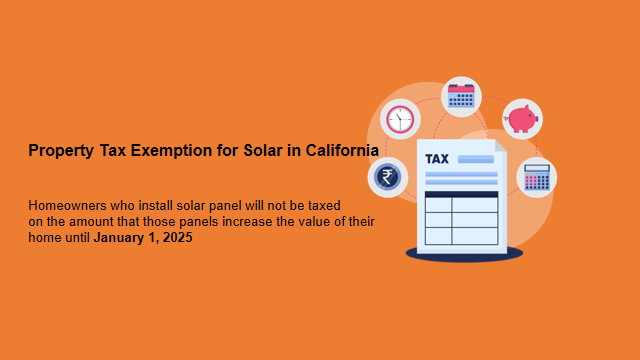Many homeowners are exploring solar power as a viable option for reducing their energy bills and minimizing their environmental impact. The question often arises: Can you get free solar panels in Maine? While the short answer is no, several programs and incentives can significantly reduce the cost of solar panel installation. Let’s dive into the details!
Solar energy is becoming an increasingly popular choice in the state due to its potential for cost savings, environmental benefits, and the availability of various incentives and programs. Here’s an overview of solar options available in Maine:
Power Purchase Agreements (PPAs)
A Power Purchase Agreement (PPA) is a financial arrangement where a third-party developer installs and maintains solar panels on a homeowner’s property, and the homeowner agrees to purchase the electricity generated by the system at a predetermined rate. This is a popular option for homeowners who want to go solar without the high upfront costs of purchasing a system outright.
With a PPA, some solar companies allow homeowners to install solar panels with little to no initial payment. Instead, homeowners pay for the electricity produced by the panels at a rate that is typically lower than their current utility rates. This can result in immediate savings on monthly electricity bills.
However, it’s important to understand that although this arrangement might feel like getting “free” solar panels, it comes with a long-term commitment. Homeowners will still be making regular payments based on their energy usage, often for 20 years or more. Therefore, while the initial costs are reduced, the financial obligation lasts for the duration of the agreement.

Tax Incentives and Rebates
While solar panels aren’t free, Maine offers a range of incentives to help reduce your installation costs significantly:
- Federal Solar Tax Credit: Homeowners can deduct 26% of their solar installation costs from federal taxes. This credit can significantly reduce the upfront cost of going solar, making it a valuable financial incentive.
- Property Tax Exemption: In Maine, solar installations are exempt from property taxes. This means that adding solar panels won’t increase your property value for tax purposes, allowing you to enjoy the full benefits of your investment without worrying about higher property taxes.

Net Energy Billing
Maine’s Net Energy Billing program allows homeowners with solar panels to earn credits on their electricity bills for any surplus energy generated. If your system produces more energy than you consume, those credits can offset future electricity costs, providing additional financial benefits.
Excess Power Credits: If your solar system produces more power than your household needs at any given time, the surplus energy is sent to the grid, and you earn credits on your electricity bill.
Offset Future Electricity Costs: These credits can be used to offset future electricity costs, especially during times when solar production is lower (such as in the winter), reducing your electricity bills.
Long-term Savings: Converting surplus energy into bill credits allows you to benefit from green energy and save on electricity costs over time.
By using credits to offset energy costs, you can significantly reduce your household electricity expenses, encouraging more households to adopt solar energy and reducing reliance on traditional utilities. This program is available to homeowners who have installed qualifying solar systems.
The Net Energy Billing program helps you maximize the benefits of your solar system by converting excess energy into savings, making solar energy an even more cost-effective investment.
The Solar for All Program
The Solar for All Program in Maine is a significant initiative designed to increase access to solar energy for low-income households. Funded by a $62 million grant from the EPA’s Greenhouse Gas Reduction Fund, the program aims to reduce financial barriers, promote environmental justice, and expand renewable energy access across the state.
- Financial Accessibility: The program’s primary goal is to remove financial barriers that prevent low-income households from benefiting from solar energy.
- Promote Clean Energy: It seeks to ensure that historically marginalized communities can participate in the transition to clean energy.
- On-site Solar Installations: Support for solar panel installations on homes and multi-family buildings.
- Community Solar Projects: Assistance for solar initiatives that allow residents without suitable rooftops to benefit from solar energy.
- Energy Storage: The program will integrate energy storage systems to improve the reliability of solar power, allowing households to store excess energy.
Current Status: While funding is secured, the program is still in the planning stages. The Maine Governor’s Energy Office (GEO) is working with the EPA to finalize details before launching the program.

Sungold Solar Panels for Home
Sungold SGD series solar panels for home, with their high-efficiency monocrystalline silicon technology, IP67 waterproof rating, long lifespan and stable power output, easy installation, strong impact resistance, and suitability for a variety of home applications, are an ideal choice for home solar systems.
Conclusion
While true “free” solar panels are not currently available in Maine, there are numerous options to make solar energy more affordable through PPAs, tax incentives, net energy billing, and upcoming programs aimed at low-income households. If you’re considering making the switch to solar power, it’s wise to explore these avenues and consult with local providers to find the best solution for your needs. By taking advantage of these programs and incentives, you can move closer to harnessing the power of the sun while enjoying significant savings on your energy bills!











